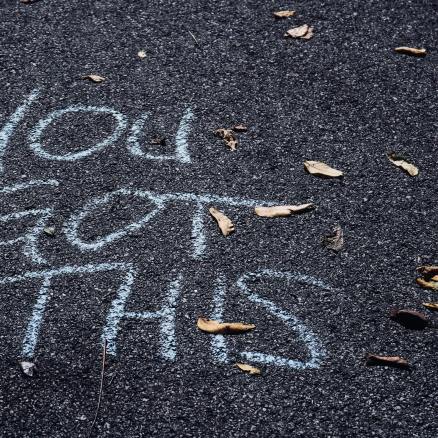Many workers now find themselves working from home and have been doing so for a while. The novelty has worn off. The reality that the “perfect” home environment doesn’t exist and the pressures of delivering on all fronts has started taking its toll. How are people to remain motivated and productive with so much uncertainty?
One thing we can do is to get clear on our “why”. Why do you need to do the work you are not motivated to do? It’s important to go beyond the first why “so my boss won’t be mad at me” and ask why again – why don’t I want my boss to be mad – so that I keep getting a paycheck – why – so that…. Keep asking why and answering with so that… until you get to something that truly motivates you. If you can get to something like so that I can take care of my family, so that we can live a good life, so that we can give back to the community – you can start to see the project that is right in front of you is part of a deeper contribution you are making. When you can see a work task as an act of love for people you care about, it becomes easier to commit to doing that work and get energized to put effort into doing it.
Another way to get more productive or motivated is to get clear on your goal. What needs to be accomplished? Does it all need to be done right now? Think about setting an intention for the work you will do for the next hour or for the day, or the week. In addition, decide if your goal is the right one. Perhaps you had a plan for 2020 and goals and things you wanted to accomplish, but now you feel behind and stuck and unable to move toward that goal and are beating yourself up. How should that goal change given your current circumstances? What is the intention behind the goal? Is there another way to get that now that circumstances have changed? Is that still the goal?
One problem a lot of people face when working from home is distraction and lack of focus. How can you stay focused when you have so many things going on around you and are getting pinged on every device and from every corner of your home? One tool I have found helps with focus and to reduce the anxiety of not feeling productive enough is box breathing. This is a technique that first responders use to calm themselves and focus on emergency situations when adrenaline is pumping. This is something you can do anywhere. Take a deep breath in as you count to 4. Hold your breath for 4 counts. Exhale for 4 counts. Hold your breath for 4 counts. Repeat this cycle a few times. How do you feel? People I have worked with say they do feel more focused, more centered and calmer and more confident about making decisions. This technique can be used whenever you start feeling unsettled or unfocused.
Once you have some focus, you can jump in to starting your task. I have found that setting a 10-minute timer helps me overcome the inertia of getting started on a task, particularly one I am not excited about doing. I tell myself; I only have to focus on the task for 10 minutes. After that, I can go do something else. I often find that once I have gotten started, it is easier to stay with the task and sometimes 30 minutes goes by and the task is complete. Sometimes, it doesn’t work, I don’t get caught up in doing that task and a drop it as soon as the timer ends. Either way, its ok. I’m 10 minutes closer to finishing that project. I’ll just come back to it with another 10-minute timer later.
That brings me to another productivity and motivation technique, be kind to yourself. Every day is not created equal. Things that work for you one day may totally be unrealistic on another day. It is unreasonable to expect that the level of productivity you had a few months ago, when you had systems and environments that were designed to help you succeed, should be the same as today. Set realistic expectations for yourself, for your teams, for your families. Things aren’t the way they were a few months ago and expecting the same level of work, productivity and motivation is setting you up for disappointment and exhaustion. This doesn’t mean you can’t get work done or be productive, but you need to be realistic about what is now possible for you and for your teams, get focused on what is important, and take necessary steps to make progress.
Review the activities you and your teams are doing. Are they all still necessary? We often keep up the same routine, task list and meeting schedule because we are accustomed to working like that. Does that still make sense? For some, it may make perfect sense. For others, priorities, resources, and focus have changed significantly. What has your team done to re-examine what should be “business as usual” and what can be deferred or eliminated? For example, do you need daily check in meetings just to stay focused on the right goals and keep up with the latest changes? Should your 2 hour weekly meeting change format or length?
Recognize that productivity may not happen on the same schedule that it used to. Can you think in slices of time rather than in huge blocks? Many people were accustomed to going to an office at 8:00 in the morning and returning in the evening. There was a transition time between work at the office and arriving home. Those transition spaces have evaporated. Needs of family members may demand consideration during the 8-5 window where they didn’t need to be accounted for a few months ago. Perhaps you need to shift your productive hours to allow you the focused time you need for work and the flexibility to show up for your family.
Another important idea to remember is that in order to show up our best and stay motivated and productive, we need to take care of ourselves. Think about where you can find time to do activities that feed you mentally, physically, spiritually. Are you getting enough of those? What can you do to get more time to take care of yourself? While some of the usual places you may have gone to do that like the gym or a spa day or a church are not available in the same way they were a few months ago, find ways to get those self-care needs met. You know what you need to recharge. Give yourself time and permission to do those things.
Get clear on your why, get focused, break the pattern of inertia, be kind to yourself, find ways to recharge, set realistic expectations and allow for some flexibility in your productivity window. What would you add?
Still need some help? The week of May 4 is International Coaching week. I am donating coaching hours that week to help people bounce back during this challenging time. If you are interested in a free 1 hour coaching session, email me at Nikki@Ridgelinecoaching.com and reference this article.


Recent Comments